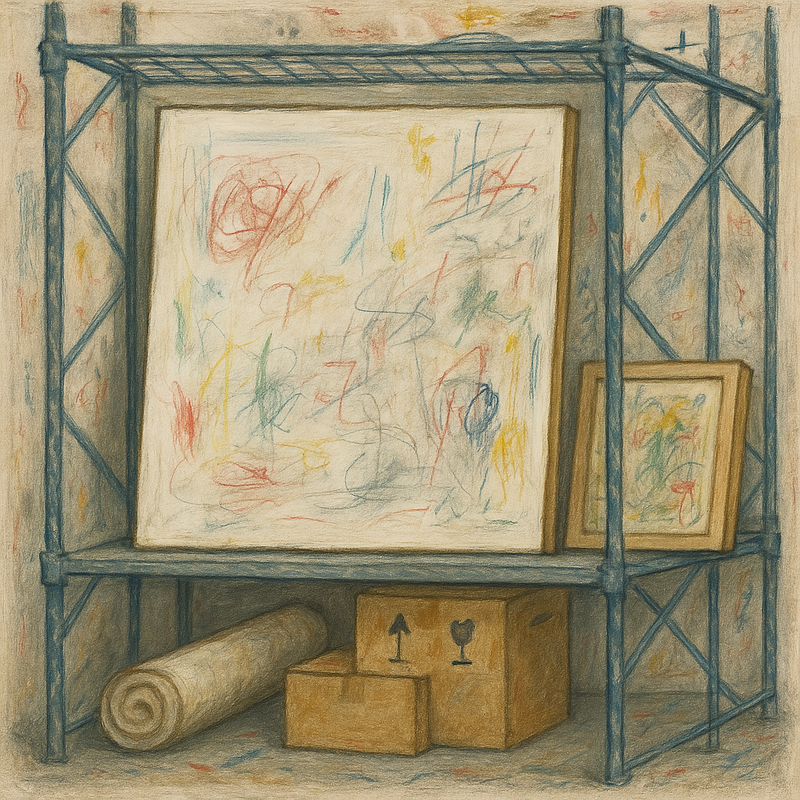
General Storage Conditions
Maintaining a stable environment is crucial for artwork preservation. Keep the temperature around 18-22°C and humidity levels between 40-50% to prevent warping, cracking, or mold growth. Avoid direct sunlight and fluorescent lighting, which can cause fading. If necessary, use LED lights with UV filters. Additionally, store artwork in a clean, dust-free space with proper ventilation to prevent moisture buildup and contaminants.
Paintings
Store paintings vertically with protective padding between pieces. Avoid leaning canvases directly on the floor; instead, use a rack or elevate them with blocks. If covering, use breathable materials like cotton sheets rather than plastic to prevent moisture buildup.
Works on Paper
(Drawings, Prints, Photographs)
Frame artworks with acid-free mats and UV-protected glass. When unframed, store them in flat, acid-free folders or archival boxes. Avoid rolling delicate pieces, as this can cause creases and damage.
Sculptures & Ceramics
Store sculptures and ceramics in a stable, vibration-free area to prevent accidental falls. Use padded supports or custom crates for fragile pieces. Avoid placing them directly on hard surfaces to prevent chipping or cracking.
Digital & Media-Based Art
Back up digital files on multiple storage devices and cloud services. Maintain necessary playback equipment for video or digital installations. Regularly check storage devices for compatibility and degradation.
Handling & Maintenance
Always handle artworks with clean, dry hands or wear cotton gloves. Avoid excessive movement and transport pieces using proper protective materials. Conduct periodic condition checks and consult professionals for conservation when necessary.
By following these guidelines, collectors, artists, and institutions can ensure their artworks remain well-preserved for future generations. Proper storage is an investment in both the artistic and historical value of a collection.

